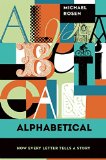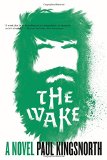Summary | Excerpt | Reviews | Beyond the book | Read-Alikes | Genres & Themes | Author Bio

The Biography of a Language
by Melvyn BraggFrom the book jacket: A landmark
history of the English language detailing
how and where it began 1,500 years ago and
how it evolved to become the tongue of some
two billion people worldwide.
Comment: Everyone knows the British
love rooting for the underdog; so as a Brit
by birth I found myself wanting to shout 'Go
English' when, in the opening chapters, I
read about the fledgling English language
doing metaphorical battle with the languages
of the plentiful invaders to the British
Isles. Then later, turning the tables to go
out into the world and spread far and wide,
absorbing parts of each language it
encountered. It's quite a gripping story -
just as one thinks English is going to be
finally squashed by an invading language, up
it bounces as right as rain, not just having
survived, but having grown by absorbing the
invader (like a linguistic version of the
movie Aliens).
As Melvyn Bragg (a prolific British novelist
and broadcast journalist) so eloquently
shows, the English language is unsurpassed
in its ability to repair and reinvent
itself. For example, I've always wondered
why the bovine in the field is called a cow,
but when it's served up on a plate it
becomes beef. Now I know that it's because
cow, sheep, deer and pig are from Old
English and would have been the words used
by the peasants at the time the Normans invaded in 1066;
whereas the French speaking Normans referred
to boeuf, mouton, venaison and porc - and, while the French feasted on the
animals at the table, their English serfs labored to look
after the beasts in the fields. Thus
the Old English words for the living animals
were retained, but the English language
absorbed different words to describe the
same animals when served up for dinner -
beef, mutton, venison and pork.
Another example is when, sometime earlier,
Old English met Old Norse (with the Viking
invasions) and words such as the Old English
'craft' met the Old Norse 'skill', and
English absorbed both, imbuing each with its
own subtle differences.
After a whistle-stop tour through the early
years of English, Bragg then traces its
journey across the globe, following it to
America, India, Australia, and elsewhere,
with several chapters on American English
and how it has been transformed by a diverse
range of influences. He ends by looking
ahead, to consider how English will be
reshaped again by the vast numbers of people
who speak English as a second language.
Many readers may have read Robert McCrum's
earlier book, The Story of English,
and might be wondering if The Adventure
of English adds anything new. This is
how Library Journal compares the two:
The Adventure of English is 'well
researched yet more accessible to a wide
audience than scholarly treatments by
linguists or historians (e.g., Robert
McCrum's Story of English and Albert
C. Baugh's History of the English
Language), this volume takes a novel
sociological approach, focusing less on the
grammar's development than on how the
language developed via people and events.'
All in all, an exceptionally enjoyable read;
if you enjoy this sort of book, you should
also take a look at
The Meaning of Everything: The Story of
the Oxford English Dictionary.
![]() This review
first ran in the September 20, 2006
issue of BookBrowse Recommends.
This review
first ran in the September 20, 2006
issue of BookBrowse Recommends.

If you liked The Adventure of English, try these:

by Michael Rosen
Published 2016
Michael Rosen takes you on an unforgettable adventure through the history of the alphabet in twenty-six vivid chapters, fizzing with personal anecdotes and fascinating facts

by Paul Kingsnorth
Published 2015
"A work that is as disturbing as it is empathetic, as beautiful as it is riveting." - Eimear McBride, New Statesman
Your guide toexceptional books
BookBrowse seeks out and recommends the best in contemporary fiction and nonfiction—books that not only engage and entertain but also deepen our understanding of ourselves and the world around us.